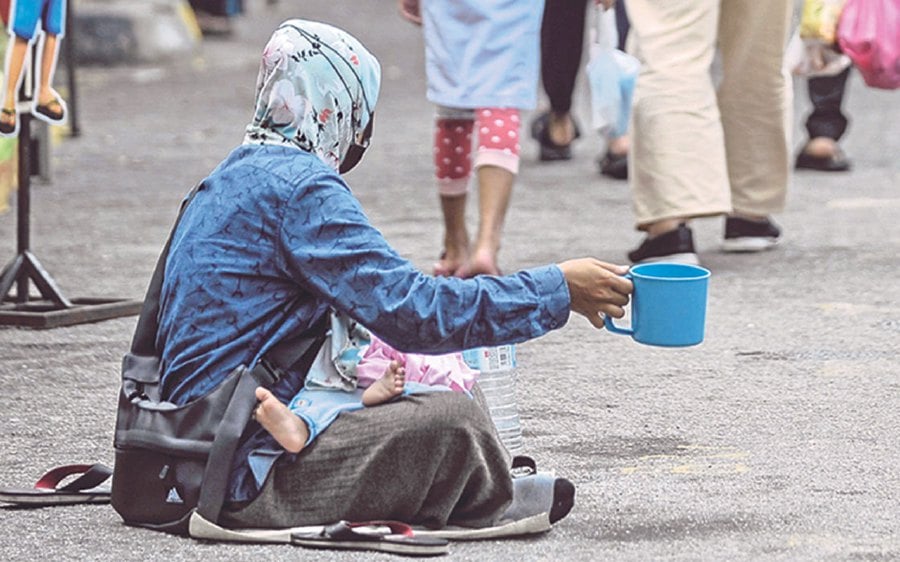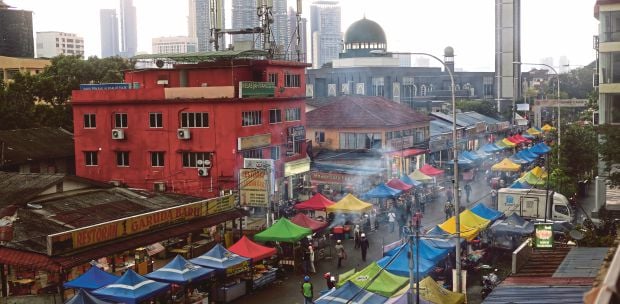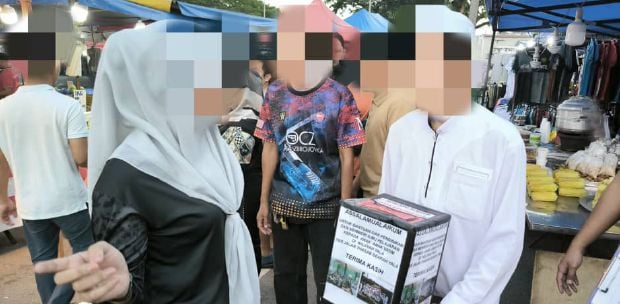ALOR STAR: Foreign syndicates who enter Malaysia through tourist visas on valid international passports have resorted to "renting children" from friends to beg in this country.
Kedah Immigration Department director Mohd Ridzzuan Mohd Zain said it has increasingly become a common tactic by foreign beggars who come to this country, especially during Ramadan, every year.
He added that some will enter this country as if to travel but change their "uniform" upon arrival in this country to beg– a tactic used to avoid detection by authorities.
"Once they have reached their target amount of money, they will return to their home country via the Malaysia-Thailand border, either through Bukit Kayu Hitam or Kota Putra, Durian Burung in Padang Terap," he said when met at his office at the Home Affairs Ministry Complex in Anak Bukit, here.
Authorities, he added, have caught some using children to gain sympathy from the public to get money, other than through fraud and exploitation.
"They are willing to rent out their friends' children to carry out their operations to get money.
"Furthermore, the profits obtained from begging also multiply (during Ramadan) compared to normal months, and they take advantage of the generous nature of the people of this country.
"Their appearance not only allows them to beg freely but also tarnishes the environment in that area," he said.
Ridzzuan said the increase in foreign beggars or vagrants can be seen around focal areas such as in towns in front of banks, markets, Ramadan Bazaars, or around mosques in Kedah.
He added that they enter this country via private vehicles but upon arrival in this country, they may be paid by others in this country to engage in begging activities.
Previously, the modus operandi of these foreigners was to sell tissues or food while begging, but during Ramadan, they tend to ask for money from the public.
Furthermore, they are also seen to be bold, aggressive, and openly begging in the respective areas.
"Most of the foreigners we have detected are from Thailand, Myanmar, Bangladesh, Pakistan, and some others.
"However, based on checks throughout last year, there were no records of Entry Rejection Notices for the vagrant or beggar groups under Section 8(3)(g) of Act 155 entering via ICQS Bukit Kayu Hitam or Kota Putra in Durian Burung.
"The entry of these foreigners cannot be identified because they do not show signs of being vagrants or beggars during counter inspections.
"We can take action under Act 155 Section 8(3)(g), prohibited immigrants– vagrants and ordinary beggars (defined as someone without a home who wanders from place to place and lives by begging)," he said.
Ridzzuan said, however, his department only received one suspect handover record (of the accused, OKT) from police regarding a begging case on Feb 13 for the Immigration Department's action, namely the Detention and Deportation Order.
He added that in line with the enforcement instructions of the Immigration Department hot spot areas, Kedah will enhance enforcement at locations where foreigners gather in six districts; namely Kuala Muda, Kota Setar, Kubang Pasu, Padang Terap, Kulim, and Pendang.
"The public can also provide information to us (Immigration Department) to facilitate action if they find foreigners detected engaging in begging or collecting alms in their areas.
"We will conduct thorough inspections, including checking travel documents and so on before further action is taken.
"We will investigate cases under Section 6(1)(c) of Act 155 if they do not possess a valid pass issued to them to enter Malaysia," he said.





